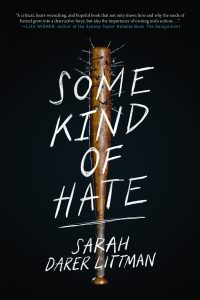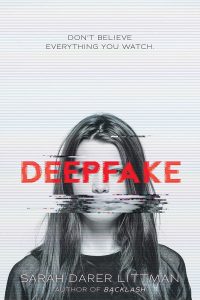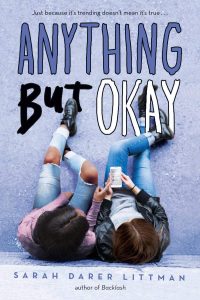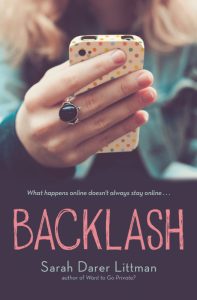Resources
Influenced Resources
Parasocial Relationships
What are Parasocial Relationships?
When Your Child is Over-Attached to Influencers
Fandom vs. Parasocial Relationships
Parasocial Relationships are Just Imaginary Friends for Adults
Parasocial Relationships Can Tell Us a Lot About the Social Brain
Do Parasocial Relationships fill a Loneliness Gap?
Positive Aspects
Parasocial Relationships on You Tube Reduce Prejudice toward Mental Health Issues
Negative Aspects
Wellness Influencers Sell False Promises as Health Fears Soar (Spreading Covid misinformation)
Influencers Don't Care if You Go Broke
Leave Chappell Alone - Why Do Fan Artist Relationships Turn Toxic
How does it Feel When Your Social Media Followers Cross A Line
Stars and repentant stans on the terror of toxic fandom
Beware the Weepy Influencers - The Atlantic
A Momfluencer's son drowned. Now other parents are rethinking how much they share online.
De-influencing
Gen Z is De-influencing on social media - Salon
Nothing is Protecting Child Influencers from Exploitation
When a Child's Life Becomes the Family Business
The Dangers of Parents Sharing Their Children's Lives on Social Media
Child Influencers Make Big Money: Who gets it?
Is Kidfluencing Child Labor? How the Youngest Influencers Remain Legally Unprotected
A Marketplace of Girl Influencers Managed by Moms and Stalked by Men
WATCH
Netflix 3-part series: Bad Influence: The Dark Side of Kidfluencing
Hulu 3-part series: The Devil in the Family: The Fall of Ruby Franke
Some Kind of Hate Resources
Extreme misunderstandings can often come from differences in language. The following glossary includes terms mentioned in Some Kind of Hate and/or are related to themes and topics in the book. Students can work with these words and complete vocabulary activities that will give them a common language with which to discuss complex topics in order for everyone in the class to be on the same page and to foster understanding.
activist: Someone who gets involved in activities that are meant to achieve political or social change.
ally: Someone who speaks out on behalf of or takes actions that are supportive of someone who is targeted by bias or bullying.
anti bias: An active commitment to challenge bias within oneself, others and institutions.
anti-immigrant
bias: The oppression of people who are of immigrant origin, transnational or outside the dominant national identity or culture.
antisemitism: The oppression of people who are Jewish, based on the belief in stereotypes and myths about Jewish people, Judaism and Israel.
bias: An inclination or preference, either for or against an individual or group, that interferes with impartial judgment.
bigotry: An unreasonable or irrational attachment to negative stereotypes and prejudices.
bullying: Repeated actions or threats of action directed toward a person by one or more people. Bullying can be physical, verbal, psychological, or any combination of these three. Bullying behaviors can include name-calling, obscene gesturing, malicious teasing, rumors, slander, social exclusion, damaging a person’s belongings, threats, and physical violence.
bystander: Someone who sees bias or bullying happening and does not say or do anything.
diversity: The range of human differences, including but not limited to race, ethnicity, gender, gender identity, sexual orientation, age, social class, physical ability or attributes, religious or ethical values system, national origin, and political beliefs.
equity: A measure of fair treatment, opportunities, and outcomes across race, gender, class, and other dynamics.
inclusion: Refers to the intentional, ongoing effort to ensure that diverse individuals fully participate in all aspects of organizational work, including decision-making processes. It also refers to the ways that diverse participants are valued as respected members of an organization and/or community.
individual racism: Occurs between individuals. These are public expressions of racism, often involving slurs, biases, or hateful words or actions.
institutionalized racism: Occurs in an organization. These are discriminatory treatments, unfair policies, or biased practices based on race that result in inequitable outcomes for whites over people of color and extend considerably beyond prejudice. These institutional policies often never mention any racial group, but the intent is to create advantages.
marginalized: A person or group that is treated as insignificant in a given society or ignored in the mainstream society.
microaggression: Statements, actions, or incidents that can be felt as instances of indirect, subtle, or unintentional discrimination against members of a marginalized group. It can often seem subtle or unintentional but still come off as biased, unfair or inequitable.
misogyny: A hatred towards women stemming from having a fixed set of ideas about women. Displayed in discrimination or prejudice against women by an individual or group.
positionality: Positionality is a theory that looks at how our identity is affected by historical and social changes. It discusses the social and political background that creates your identity in terms of race, class, gender, sexuality, and ability. This means your identity influences your understanding, outlook, and experiences in the world.
white privilege: Refers to the unquestioned and unearned set of advantages, entitlements, benefits, and choices bestowed on people solely because they are white. Generally white people who experience such privilege do so without being conscious of it.
white supremacy: A form of racism centered upon the belief that white people are superior to people of other racial backgrounds and that whites should politically, economically, and socially dominate non-whites.
white nationalism: Any group or propaganda that allows for white supremacist ideologies or beliefs. It often focuses on the alleged inferiority of nonwhites. White nationalism is often used as a substitute for the phrase white supremacy. It can be used to emphasize or promote a system that would prioritize the interests of whites exclusively and may support racial segregation.
xenophobic: the excessive fear of all that is foreign and especially of those foreign to your own country of origin. It is an extreme narrow mindedness often going along with extreme patriotism or racism.
SOME KIND OF HATE Educator Guide
Examples of research websites
PBS News Hour: How students experience and cope with racist stereotypes
Jewish Women's Archive - Stereotypes in United States
Gender Equality Law Center: Examples of Gender Stereotypes
Disability History Museum: Stereotypes about People with Disabilities
US Holocaust Memorial Museum: Stereotype images
PublicSource.org: The historic roots of antisemitism and how they play out today
Examples of high interest or pop culture websites:
Seventeen.com: Annoying Teen Stereotypes
Areavibes.com: US State Stereotypes
Helpfulprofessor.com: Types of Stereotypes
University of Illinois: Countering Stereotypes about Teens can change their behavior
TeenVogue: Myths about Muslim women debunked
How Can We Tell Cartoon activity - sample research sites
NewsLit.org
Pen America - Knowing the News
Common Sense Media: How to spot fake news and teach kids to be media savvy
TeachingKidsNews.com: Resources for spotting fake news
Games for Change: Student challenge - News Literacy
OOMScholasticblog.com: Tips to help kids find trustworthy sources
Scholastic Civics in Action: Media Literacy
Scholastic: Mastering Media Literacy and Digital Literacy
Radicalization
The Washingtonian: What Happened After My 13-Year-Old-Son Joined the Alt-Right
Fast Company: I became part of the Alt-Right at age 13, thanks to Reddit and Google
LAist: How to Talk To Kids About Radicalization
Building Networks and Addressing Harm: A Community Guide to Online Youth Radicalization
JTA: Antisemitism, white supremacy and Swords
Brookings: Riots, white supremacy and accelerationism
Eric K Ward: Skin in the game: how antisemitism animates white nationalism
ADL: Report - White Supremacist Propaganda
Poynter.org - A guide to the identities and language of the far right
Wired Magazine -How 'Roblox' Became a Playground for Virtual Fascists
Time Magazine - Extended Loneliness Can Make You More Vulnerable to Extremist Views
Bookshop.org list of research books I read to write SKOH
Recognizing and Confronting Antisemitism and other hatreds
Jewish Boston
ADL: Resources to address and challenge antisemitism
ADL - Hate is No Game: Hate and Harassment in Online Gaming
Behind the Lies of Holocaust Denial - Deborah Lipstadt TED talk
ADL Antisemitic stereotypes persist in America
ISD Global: Rise of Antisemitism during the pandemic
Ex-neo-Nazi Christian Picciolini: "The words I used to say are now part of the mainstream"
Truah: A Very Brief Guide to Antisemitism
ADL: The Protocols of the Elders of Zion
Resources and Tools for Addressing Antisemitism, Intolerance, & Bias - Jewish Federation of Greater Washington
Offensive Political Dog Whistles: You know them when you hear them. Or do you?
If you want to learn about Judaism, PLEASE read Jewish sources
How to learn about Jews from Jews, rather than people who hate them
Fighting Antisemitism Using Children's Literature - resources and presentation by Joanne Levy and Tzipporah Cohen
Resources for being Antiracist
NMAAHC | National Museum of African American History and Culture |
Lehigh University | Antiracist Terms & Glossary
Georgetown University Library | Antiracist Toolkit |
Crusades
Time: What the Far Right get's wrong about the Crusades
Bayt Al Fann - highlighting Islamic Art and Culture
Science: How Europe exported the Black Death
Alt-right claims to march in step with the Knights Templar – this is fake history
What Killed The Jews in Norwich Well is Still Alive Today
Deradicalization
Mother Jones: Inside the radical uncomfortable movement to deradicalize
Breaking Hate: Supporting kids to push back against white nationalism
ADL How to support kids to push back against white nationalism
What I learned from friendship with a former white supremacist
Raising Emotionally Healthy Sons
Great Good Center, The Myth of the Alpha Male
American Psychological Association. (2018, September). Harmful masculinity and violence. In the Public Interest.
In cowboy country, a single mother tries to raise her son to be a good man
Uvade gunman frequently threatened teen girls online
Men's Resource Center of West Michigan - Talking about Toxic Masculinity
New York Times: How to Raise a Feminist Son
Video: 48 Phrases that All Men Hear that are Bad for Everyone
Fighting Hate
Hope Not Hate UK
ADL
Tracking activity in your community
Rolling Stone: Top Undercover agent sounds alarm about threat of far-right extremism in US
One Small Step Initiative from StoryCorps
Dylan Marron TED talk - Empathy is not endorsement
Freedom of Religion
Letter from President George Washington to the Hebrew Congregation of Newport
Did George Washington really love the Jews
Other Book-Specific Resources
FACT CHECKING WEBSITES
KNOW YOUR SOURCE - Media Bias Ratings
FURTHER READING FOR STUDENTS
True or False: A CIA Analyst’s Guide to Spotting Fake News by Cindy L. Otis. A former CIA analyst unveils the true history of fake news and gives readers tips on how to avoid falling victim to it in this informative YA nonfiction title.
ARTICLES
Clearing the Confusion: AI vs. Machine Learning vs. Deep Learning This is an easy-to-understand explanation of the difference between these terms.
Using AI Networks to create avatars of fake people Is that account you’re following on social media a real person?
Right Wing Media Outlets duped by Middle East Propaganda Campaign (Daily Beast) Some of the accounts in this propaganda network used AI generated avatars.
Deep Voice Software can clone anyone’s voice with just 3.7 seconds of audio This is faster than similar programs such as Lyrebird and Adobe VoCo.
Simple out-of-context photos can spread misinformation (Neiman Labs) We don’t need deepfakes to create confusion.
Deepfaking photos of the Earth has the potential for serious military consequences
Deepfakes and the New AI-Generated Fake Media Creation-Detection Arms Race Manipulated videos are getting more sophisticated all the time—but so are the techniques that can identify them
FOR EDUCATORS
NEWS LITERACY PROJECT a nonpartisan national education nonprofit, empowers educators to teach students the skills they need to be smart, active consumers of news and other information and engaged, informed participants in civic life.
MEDIA MANIPULATION.ORG from the Shorenstein Center at Harvard. The Media Manipulation Casebook is a research platform that advances knowledge of misinformation and disinformation and their threats to democracy, public health, and security. The Casebook is a new resource for building the field of Critical Internet Studies by equipping researchers with case studies, theory, methods, and frameworks to analyze the interplay of media ecosystems, technology, politics, and society.
NAMLE: National Association of Media Literacy Educators non-profit organization dedicated to advancing media literacy education
CENTER FOR MEDIA LITERACY an educational organization that provides leadership, public education, professional development and evidence-based educational resources nationally and internationally.
CLOSE READING THE MEDIA by Frank Baker offers great material on the MiddleWeb site.
MEDIA LITERACY NOW Advocacy organization for Media Literacy legislation on the state level.
FACT vs. FICTION - Teaching Critical Thinking Skills in the Age of Fake News Jennifer LaGarde and Darren Hudgens is a great resource for educators
SPOT THE TROLL - Test your ability to spot fake profiles
RESEARCH STUDIES
Students’ Civic Online Reasoning: A National Portrait: A disturbing study from Stanford that shows how much work we have to do.
From the abstract:
Students displayed a troubling tendency to accept websites at face value. Ninety-six percent failed to consider why ties between a climate change website and the fossil fuel industry might lessen that website’s credibility. Instead of investigating who was behind the site, students focused on superficial markers of credibility: the site’s aesthetics, its top-level domain, or how it portrayed itself on the About page.
Nearly all students floundered. Ninety percent received no credit on four of six tasks.
Reliable information is to civic health what proper sanitation and potable water are to public health. A polluted information supply imperils our nation’s civic health. We need high-quality digital literacy curricula, validated by rigorous research, to guarantee the vitality of American democracy.
Education moves slowly. Technology doesn’t. If we don’t act with urgency, our students’ ability to engage in civic life will be the casualty.
The spread of true and false news online A study that backs up Jonathan Swift’s observation in 1710: "Falsehood flies, and the Truth comes limping after it.” With social media, falsehoods fly even faster, to a wider audience.
From the abstract:
False news reached more people than the truth; the top 1% of false news cascades diffused to between 1000 and 100,000 people, whereas the truth rarely diffused to more than 1000 people. Falsehood also diffused faster than the truth. The degree of novelty and the emotional reactions of recipients may be responsible for the differences observed.
Designing and Testing News Literacy Messages for Social Media
From the abstract:
This study examines the effectiveness of deploying news literacy (NL) messages on social media by testing whether NL tweets are able to affect perceptions of information credibility and NL beliefs. Using two experiments, this study tests NL tweets designed to (a) mitigate the impact of exposure to misinformation about two health issues (genetically modified foods and the flu vaccine) and (b) boost people's perceptions of their own media literacy and media literacy's value to society broadly. Findings suggest that NL messages are able to alter misinformation perceptions and NL beliefs, but not with a single message, suggesting the need to develop tailored and targeted NL campaigns that feature multiple messages and calls to action
Millennials at the back gates: how young adults’ digital news practices present a new media logic for news gathering and gatekeeping as user-oriented activities in a participatory news ecosystem. See extremely disturbing quote from study below.
From the study: (my bolding)
A surprising majority of informants (96%) also indicate that when they see a news item on social media they almost invariably refer it to a Google search to see if other items appear, which seems to confirm and authenticate news information to this study’s cohort, even without checking to see if the other links or articles found come from credible or reliable news sources. To them, the simple fact that other articles are being shown on a Google search result list provides a certain level of confirmation and legitimacy, making Google’s search engine itself a primary news authenticator.
From the abstract:
Despite the pervasiveness of digital disinformation in society, little is known about the individual characteristics that make some users more susceptible to erroneous information uptake than others, effectively dividing the media audience into prone and resistant groups. This study identifies and tests procedural news knowledge as a consequential civic resource with the capacity to inoculate audiences from disinformation and close this“resistancegap.”
From the abstract:
Findings reveal that students were more likely to leave the presented webpages and investigate the sources before making a credibility judgment after the curricular intervention. Furthermore, after the intervention students were more likely to prefer a more credible source of information over a less credible source when the two sources were presented. However, few students improved in their ability to assess a single deceptive website, despite applying several of the strategies taught in the intervention. We conclude that strategy-and skills-based information literacy instruction holds promise but must be paired with foundational knowledge about how the internet is structured and the kinds of online source
Educator Guide for Anything But Okay
SUPPORT VETERANS FROM IRAQ AND AFGHANISTAN WARS - donate to:
LEARN ABOUT REGISTERING TO VOTE HERE:
LEARN MORE ABOUT THE ISSUES:
USEFUL LINKS
- ADL Antibullying Resources
- Cyberbullying Research Center
- Megan Meier Foundation | Bullying and Cyberbully Prevention
- A THIN LINE, MTV's sexting, cyberbullying, digital dating abuse campaign : www.athinline.org
- Teens, kindness and cruelty on social network sites | Pew Research Center's Internet & American Life Project
- nerdybookclub.wordpress.com
- NoBullying|Bullying & Cyber Bullying Resources & Advice
- Help Stop Bullying and Cyberbullying | STOMP Out Bullying™
- Suicide Prevention Lifeline
- Amanda Todd Legacy (Official website) | #amandatoddlegacy
FACTS
Peer victimization in children and adolescents is associated with higher rates of suicidal ideation and suicide attempts (JAMA Pediatrics, 2014).
Cyberbullying was strongly related to suicidal ideation in comparison with traditional bullying (JAMA Pediatrics, 2014).
Cyberbullying has negative effects on victims, such as lowering self-esteem, increasing depression and producing feelings of powerlessness (Anderson, 2014).
About 21% of teens have been cyberbullied and about 15% admitted to cyberbullying others at some point in their lifetimes. (Patchin & Hindjua 2013)
All info below from Pew Internet Study:
Teens, kindness and cruelty on social network sites
How American teens navigate the new world of digital citizenship (Lenhart, Madden, et al 2011) 88% of social media-using teens have witnessed other people be mean or cruel on social network sites.
• Among social media users, 88% of teens have seen someone be mean or cruel to another person on a social network site. Asked, “When you’re on a social networking site, how often do you see people being mean or cruel?,” teens who use social network sites say the following about how frequently they witnessed such behavior:
• 12% say they witnessed cruel behavior “frequently.”
• 29% say they saw meanness on social network sites “sometimes.”
• 47% say they saw such behavior “only once in a while.”
• 25% of social media teens have had an experience on a social network site that resulted in a face-to-face argument or confrontation with someone.
• 22% have had an experience that ended their friendship with someone.
• 13% have had an experience that caused a problem with their parents.
• 13% have felt nervous about going to school the next day.
• 8% have gotten into a physical fight with someone else because of something that happened on a social network site.
• 6% have gotten in trouble at school because of an experience on a social network site.
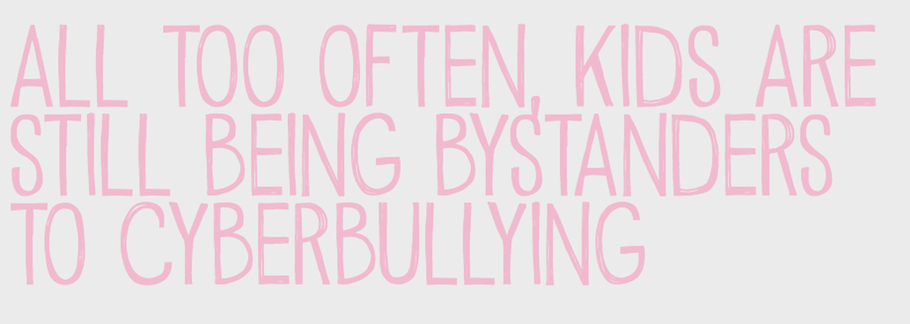
Social media-using teens who have witnessed online cruelty say that people most often appear to ignore the situation, with a slightly smaller number of teens saying they also see others defending someone and telling others to stop their cruel behavior.
• 95% of social media-using teens who have witnessed cruel behavior on the sites say they have seen others ignoring the mean behavior; 55% witness this frequently.
• 84% have seen people defend the person being harassed, with 27% seeing this frequently.
• 84% have seen others tell someone to stop; 20% report seeing this frequently.
A majority of teens say their own reaction has been to ignore mean behavior when they see it on social media.
When asked about their own behavior, social media-using teens are most likely to say they ignore the behavior themselves, though others defend the victim and tell people to stop.
• 90% of social media-using teens who have witnessed online cruelty say they have ignored mean behavior on social media, and more than a third (35%) have done this frequently.
• 80% say they have defended the victim; 25% have done so frequently.
• 79% have told the other person to stop being mean and cruel; 20% have done so frequently
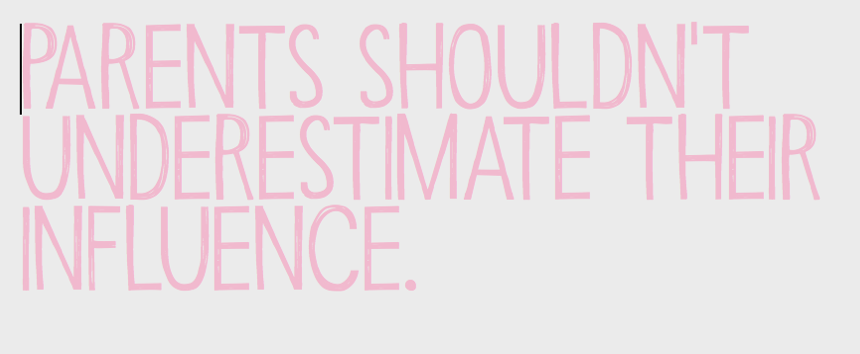
For general advice and influence, parents are still the top source for teen internet and cell phone users. However, teens receive advice from a wide array of sources.
• 86% of online and cell phone-using teens say they have received general advice about how to use the internet responsibly and safely from their parents.
• 70% of online and cell-using teens say they have gotten advice about internet safety from teachers or another adult at school.
• 45% have received advice from friends or classmates, 45% have received general advice from an older relative, and 46% have received internet safety advice from a brother, sister, or cousin.
• 58% of teen internet and cell phone users say their parents have been the biggest influence on what they think is appropriate or inappropriate when using the internet or a cell phone.
• 18% of teens say their friends have been their biggest influence on appropriate internet or cell phone behavior.
• 8% say “no one” has influenced them.
CLICK HERE FOR ONE PAGE PDF WITH INFORMATION ON CYBERBULLYING AND BACKLASH FROM SCHOLASTIC PRESS
WEBSITES
National Eating Disorders Association
National Institute of Mental Health
BOOKS
Here's a list of books that I found helpful in terms of understanding the causes of eating disorders and learning to overcoming them:
The Body Project - An Intimate History of American Girls by Joan Jacobs Brumberg. I found this book particularly fascinating because it traces the changes in emphasis from developing a girl's character to her looks over the last century. I would read this book in a mother-daughter book club with my daughter at some point. There's so much for discussion.
The Body Betrayed - A Deeper Understanding of Women, Eating Disorders, and Treatment by Kathryn J. Zerbe, MD
The Disappearing Girl - Learning the Language of Teenage Depression by Dr Lisa Machoian
<gaining> the truth about life after eating disorders by Aimee Liu
The Secret Language of Eating Disorders - by Peggy Claude-Pierre
For Writers
Here's a basic character worksheet I created for my creative writing workshop
THE CRAFT OF WRITING
The Highlights Foundation has an amazing archive of talks given at their annual Chautauqua conference. You can search by topic or author or year of the conference.
Great post from author Jenny Crusie on Pacing, using a clothesline analogy
If you want to write for children or teens you should definitely join the Society for Children's Book Writers and Illustrators (SCBWI)
Here are some other useful sites:
Cynthia Leitich Smith - Cynthia's site is packed with fantastic information, author and editor interviews, you name it!
FOR TEENS WHO WRITE:
PUSH - an imprint of Scholastic started by author and editor David Levithan, Push has an annual novel writing contest for teens in grades 7-12.
Teen Ink - an e-zine written for teens by teens. It also has a section listing writing contests you can enter.
The Scholastic Art and Writing Awards have launched many famous writers
FOR PRE-TEENS WHO WRITE
Stone Soup - publishes stories and art from kids up to the age of 13.
1) READ! READ! and then go READ some more! The best writers I know are also phenomenal readers. I also listen to books on tape when I go on long car trips with my kids. I thought Harry Potter was brilliant when I read it, but listening to Stephen Fry read it (we got the English version) I was even more impressed by JK Rowling's imagination and her skill with words. Same with "Double Fudge" by Judy Blume - one of our family favorites. We listened to it on the way down to Washington, D.C. so of course we had to visit the U.S. Mint! ("Money, Money, Money, I love Money Money Money")
2) Take lots of showers. My characters always seem to talk to me when I'm in the shower. (One of the things I like about being a writer is that when I tell my agent that my characters are talking to me in the shower, she says, "Great!" instead of putting me in a straightjacket and shipping me off to the funny farm.) Not sure if it's the running water that makes them so chatty. But I always seem to get snippets of dialog when I'm in the shower. Problem is, I can't take a notebook and pen in with me, so I have to remember to write things down when I get out.
3) Can't think about what to write about? Use your own feelings and experiences. A lot of the things Jussy feels and thinks about in "Confessions of A Closet Catholic" are things that I was grappling with in middle and high school. The circumstances might be different, but the feelings are the same. And I have to confess - the obsession with chocolate is very autobiographical...I come from a long line of chocoholics!
4) Get to know your character. What do does he/she like and dislike? What does your character want the most in the world? And what is stopping him or her from getting it? You might not use every little detail when you write, but it helps to know about your character before you start. Even so, you'll be surprised where your characters lead you by the time you finish!
5) Write a little bit EVERY DAY! Set yourself an achievable daily word count and try to stick to it. Writing every day helps to keep your characters' voices chattering away in your head. If you ignore them for too long they tend to get all huffy and stop speaking to you - at least that's the case with my characters. They're a temperamental lot.
I like to collect quotes about writing and the writing life. Please e-mail me any good ones you find.
Don't tell me the moon is shining; show me the glint of light on broken glass. ~Anton Chekhov
I'm not interested in writing short stories. Anything that doesn't take years of your life and drive you to suicide hardly seems worth doing. ~Cormac McCarthy
An author is a fool who, not content with boring those he lives with, insists on boring future generations. - Charles de Montesquieu
There's nothing to writing. All you do is sit down at a typewriter and open a vein. ~Walter Wellesley "Red" Smith
Writing is a socially acceptable form of schizophrenia. ~E.L. Doctorow
I try to leave out the parts that people skip. ~Elmore Leonard
Until we invent telepathy, books are our best choice for understanding the rest of humanity. - Christopher Paolini
It is necessary to write, if the days are not to slip emptily by. How else, indeed, to clap the net over the butterfly of the moment? For the moment passes, it is forgotten; the mood is gone; life itself is gone. That is where the writer scores over his fellows: he catches the changes of his mind on the hop. ~Vita Sackville-West
Substitute "damn" every time you're inclined to write "very;" your editor will delete it and the writing will be just as it should be. ~Mark Twain
I'm not a very good writer, but I'm an excellent rewriter. ~James Michener
The wastebasket is a writer's best friend. ~Isaac Bashevis Singer
Fill your paper with the breathings of your heart. ~William Wordsworth
Metaphors have a way of holding the most truth in the least space. ~Orson Scott Card
The difference between the right word and the almost right word is the difference between lightning and a lightning bug. ~Mark Twain
I love writing. I love the swirl and swing of words as they tangle with human emotions. ~James Michener
If my doctor told me I had only six minutes to live, I wouldn't brood. I'd type a little faster. ~Isaac Asimov
I love being a writer. What I can't stand is the paperwork. ~Peter De Vries
Words - so innocent and powerless as they are, as standing in a dictionary, how potent for good and evil they become in the hands of one who knows how to combine them. ~Nathaniel Hawthorne
Storytelling reveals meaning without committing the error of defining it. ~Hannah Arendt
Write down the thoughts of the moment. Those that come unsought for are commonly the most valuable. ~Francis Bacon
A synonym is a word you use when you can't spell the other one. ~Baltasar Gracián
If I don't write to empty my mind, I go mad. ~Lord Byron
Writing is a struggle against silence. ~Carlos Fuentes
The best time for planning a book is while you're doing the dishes. ~Agatha Christie
Writers are not just people who sit down and write. They hazard themselves. Every time you compose a book your composition of yourself is at stake. ~E.L. Doctorow
As for my next book, I am going to hold myself from writing it till I have it impending in me: grown heavy in my mind like a ripe pear; pendant, gravid, asking to be cut or it will fall. ~Virginia Woolf
How vain it is to sit down to write when you have not stood up to live. ~Henry David Thoreau, Journal, 19 August 1851
It is impossible to discourage the real writers - they don't give a damn what you say, they're going to write. ~Sinclair Lewis
Writing is both mask and unveiling. ~E.B. White
Loafing is the most productive part of a writer's life. ~James Norman Hall
A writer is somebody for whom writing is more difficult than it is for other people. ~Thomas Mann, Essays of Three Decades, 1947
You could compile the worst book in the world entirely out of selected passages from the best writers in the world. ~G.K. Chesterton
The good writing of any age has always been the product of someone's neurosis, and we'd have a mighty dull literature if all the writers that came along were a bunch of happy chuckleheads. ~William Styron, interview, Writers at Work, 1958
Writing a book is a horrible, exhausting struggle, like a long bout of some painful illness. One would never undertake such a thing if one were not driven on by some demon whom one can neither resist nor understand. ~George Orwell, "Why I Write," 1947
The two most engaging powers of an author are to make new things familiar and familiar things new. ~Samuel Johnson
The best style is the style you don't notice. ~Somerset Maugham
Drama, instead of telling us the whole of a man's life, must place him in such a situation, tie such a knot, that when it is untied, the whole man is visible. ~Leo Tolstoy
Every author in some way portrays himself in his works, even if it be against his will. ~Goethe
#Freedom to Read Resources
There’s a coordinated, well-funded effort in the United States to ban any books that elevate the voices of minority communities.
Students of history know that this never ends well. We need to fight it whenever we see it. Young people are already under enough emotional stress and pressure after living through a global pandemic. They NEED to know that they are seen and heard.
I write young adult novels because I WISH I’d had books that reflected the things I was going through when I was a teenager. It would have shown me I wasn’t defective. It would have given me comfort that I wasn’t alone.
Join the fight. Support teachers. Support librarians. Support authors whose books are challenged. Support public education that reflects our diverse and wonderful tapestry of ALL Americans.
Don’t be afraid of ideas that make you uncomfortable. Talk about them. Listen to the thoughts and experiences of others. That’s how we learn and grow, a life-long process.
Before it was changed during the “Red Scare” of the 1950’s, our national motto was “E PLURIBUS UNUM”, Latin for “Out of Many, One. We need to go back to that idea.
School Library Advocacy
“Libraries made me a writer, but more importantly, they made me a thinker.”
—Sarah Darer Littman
Advocating for libraries and literacy is my passion.
Here are links to two advocacy pieces I’ve written about the importance of trained librarians.
College and Career and Democracy Ready? Not without a Trained Librarian
And here is a speech I gave at the Ferguson Library in my hometown of Stamford, CT about the influence of libraries and librarians on my life.

